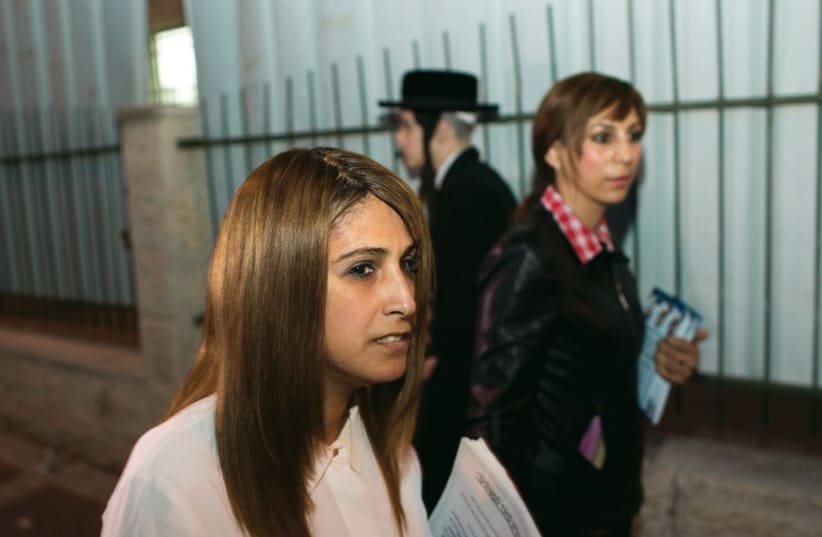See the latest opinion pieces on our page
This, as women keep dying from a disease that can be diagnosed and treated.One cannot claim to represent the women of their community and then refuse to discuss their health issues. Haredi women and their interests are simply not represented in the Knesset today.Ubezchutan is a party of women willing to dedicate their lives to making sure the women in haredi communities and the women across Israel whose voices today are overshadowed by “security concerns” are finally heard.An elite few from within the haredi community have slandered the women of the Ubezchutan Party, calling them “not haredi enough” and claiming that no haredi would ever vote for them, woman or man. It is easy to read an article written by a haredi woman and assume she speaks on behalf of all haredim. That simply isn’t the case. Most haredi women do not have the education and opportunities afforded those few who can reach out to the press, nor do they have the education or opportunity to leave the house and work and make ends meet, regardless of their need to do so.It is that sector of society Ruth Colian and her party wish to represent, those who today are not heard even in their own communities.These women, many of whom support the party, are afraid to speak out in its favor, as they do not want their husbands and children to feel the reprisal of the few who disagree with them. It is those in comfortable positions of power today, those who run the haredi school systems, those who employ the teachers in the communities, those who own, run and edit the haredi newspapers and magazines – it is that elite cadre of haredim that do not want to see the changes Ubezchutan is bringing about, as it will empower those who are today too easy to manipulate and ignore.It has further been argued that a haredi woman’s place is in the home and in the world of education, as the Jewish people’s future is in their hands. These women are nothing if not grounded in the home. That is what makes them perfect candidates for the Knesset.They have a strong sense of family and know the hardships women across Israel encounter when trying to balance work life and home life. They also have a strong sense of responsibility, as women who care for over a dozen children between them. These seem to be qualities lacking in the current haredi leadership. Ruth Colian would never miss a Knesset committee hearing dedicated to talking about the health of any sector of society, because she feels the burden of the millions of mothers across the country terrified for their loved ones and for themselves.Moreover, the Knesset is the ultimate educational setting. It is where the shaping of our society starts and from there trickles down. To claim that a woman’s job is the shaping of future generations through education and then deny her a seat in the Knesset is the height of irony, in a deeply saddening way. Our educational frameworks are shaped in the Knesset. The laws that determine how our lawmakers, police, army, and courts treat the citizens of our country, setting a pattern of acceptable behavior for citizens, are shaped in the Knesset. How awful that haredi women have never before had a say in this incredible educational institution that is the Knesset.To be “haredi enough,” by the standards we see today, a woman must take on the duties outside the home to allow for her husband to dedicate himself to Torah study. Here is a Passover gift to MK Moshe Gafni, MK Yaakov Litzman, MK Aryeh Deri and MK Eli Yishai – we release you from the burden of the Knesset. Go and be Torah scholars. Allow the women of the Ubezchutan Party to do the mundane task of representing the haredi population while you return to your yeshivot and immerse yourselves in Torah. Allow the women of Ubezchutan to deal with the education of the people of Israel, which starts in the Knesset.For too long, women in the haredi world have been denied a voice in the place that passes laws that affect them, their health, their children, their education, their families, their communities, their lives on every level. On Tuesday, when millions of Israelis step up to the election box, shrouded by the partition and standing only before ballot papers and God, we will see the start of a revolution, one where women who never before had a voice can speak up and say – I demand representation!
Haredi women deserve representation
Religious women are demanding they be represented in this year's election.
